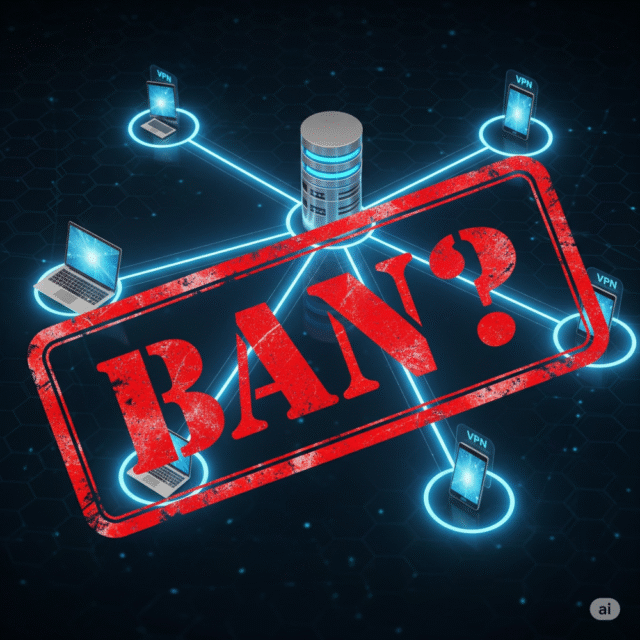Could the UK government really ban VPNs?

As we’ve been reporting over the past week interest in VPN use in the UK has spiked following concerns about the Online Safety Act and its age verification rules.
Inevitably the government has noticed the surge in VPN use and while it insists it has no plans to ban their use the science secretary, Peter Kyle, says it will be looking “very closely” at how they’re being employed.
VPNs of course have perfectly legitimate uses. Their ability to create a secure ‘tunnel’ through the internet between two locations -- masking your IP address and encrypting data transmitted to and from devices, making it impossible for third parties to intercept -- means they’re widely used by people accessing corporate systems remotely.
They can be used for other things too, a VPN’s ability to mask your location is often used to get around the geographic restrictions imposed by streaming services for example.
It’s also worth noting that some VPNs are better than others, with free options generally offering less protection and in some cases harvesting personal information.
Given the widespread use of the technology it seems unlikely that the government would seek an outright ban. Indeed to do so would put the UK in some unsavory company, countries with VPN bans include North Korea, Iraq, China, Russia and the UAE. Experience in those countries also suggests that people will find a way around the ban anyhow.
Even so concern around possible regulation of VPNs is already leading some to look at alternatives. Infrastructure provider Decodo has recorded a rise in the adoption of proxies. According to Decodo’s latest data, there’s been a 65 percent rise in UK proxy users, with proxy traffic up by 88 percent, indicating a shift in how companies access geo-restricted content, ensure secure data collection, and avoid VPN-related risks.
Proxies provide more granular routing options and operate with fewer regulatory hurdles. This makes them highly adaptable for use cases including location-specific data collection, overcoming geo-restrictions, competitor monitoring, and reducing the risk of triggering anti-bot protections.
Vytautas Savickas, CEO at Decodo suggests this represents a shift in organization’s digital strategy, “Companies around the globe are getting smarter about how they operate in highly competitive landscapes. Instead of just picking the most popular tools, they’re choosing what actually works best for them, whether that’s faster, easier to use, or works better with region-specific restrictions. It shows that people are thinking more critically about their options.”
While there are no plans at the moment for a VPN ban the government has warned that, “…where platforms deliberately target UK children and promote VPN use, they could face enforcement action, including significant financial penalties.”
Would you be affected by a VPN ban? Have you encountered issues with the new age verification rules? Let us know in the comments.
Image credit: Gemini
